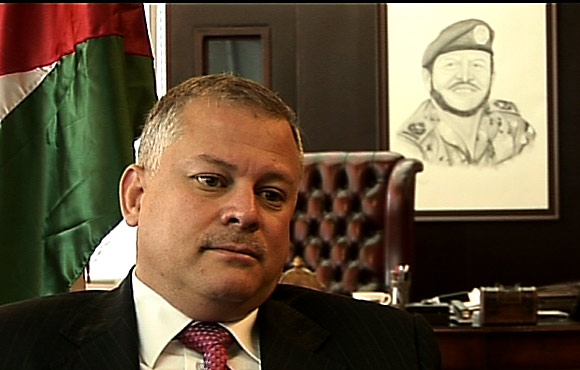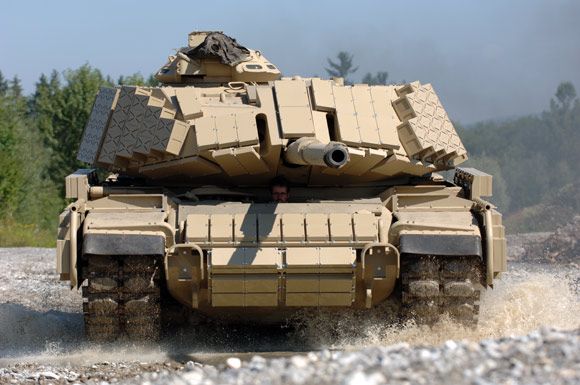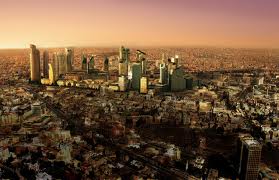Largest Real Estate Developer in Jordan
I am also looking at turning Mawared into more of a commercial entity, so profits and loss will be very much clear.
Interview with Dr. Moayad Samman, Chairman of King Abdullah Design and Development Bureau and Managing Director of Mawared

What is your perception of the business economic climate in Jordan and what could be done to improve its position?
The economic crisis that hit the Middle East region affected Jordan as well; however, I think we did well according to indicators mentioned by the government. We are expecting to pick up by early next year and hopefully with the structural and financial reforms that are currently underway by the government things will be progressing.
What is the biggest challenge for Jordan, economically-speaking?
We cannot ignore the geopolitical situation that we are surrounded by; the conflicts in the region definitely affect us and are considered one of the major challenges for Jordan, especially when it comes to promoting investment and exporting to other countries. These conflicts also affect other countries in the region, not just Jordan. Internally, the size of the market is very limited, and through different agreements that the government has signed we’re trying to expand the market and to encourage the private sector to go outside and export their products. Also, the lack of natural resources such as petroleum, water, and other resources that could be used as raw materials for industry is an issue.
You have a career in the defense industry. How hard has this industry been hit by the global economic downturn? Has the industry been slowed down as a result of it?
Last year, we actually had growth in our figures. This might be due to our small size; when you’re small in size and your production capacity is limited, you’re not hit as much as other companies with large sizes and higher turnover and revenues. The other aspect is that unfortunately, due to the political environment that has prevailed during the last two to three years, especially in the Middle East, there was high demand put on the defense industries to be more active. Unfortunately, when there is more conflict, we become more active and make more money. As far as potential goes, Iraq and the Gulf countries would make up the majority of market opportunities.

How do you stand out from the competition and how would you define your 2010-11 agenda?
We have our own unique model. From the beginning, we tried to get engaged with good partners in the world that have experience and the know-how. We are partners with twelve companies in twelve nations, such as the US, Europe, Russia, and even in Malaysia. This gives us the advantage to be proactive, to start strong, with the right quality product. Also, producing in Jordan gave us the niche for producing at lower costs. Being in the Middle East, we adapt our products to the environment or the culture of the region, giving us another niche to compete regionally and elsewhere.
Can you tell us about some success stories you have had?
We only started ten years ago, and the first five years were building infrastructure and turnover was almost nil. Now we’re talking about a turnover of over 100 million, and we expect in the coming two years to reach up to 300-400 million US dollars, with two more companies coming on board. We are, for example, considered number one or two when it comes to exporting armored Land Cruisers in the world.
What would be your message to the international audience about KADDB’s needs?
KADDB has become a limited private shareholding company run as a business company. All our companies are under KADDB Investment Group which is owned by the government. This does not mean it will stay under the government, however. We restructured it this way because we wanted to attract more people, according to our vision, to be the preferred customer globally. We’re looking outwards, for investors to come and benefit from the experience, capabilities, and infrastructure that we have developed throughout the years. I am promoting KADDB because we are a successful company, so any partner of a successful company will become successful. We are in proximity to all the Arab countries, we have huge potential that has been increased with Iraq. Anyone who comes here will find the right qualifications, facilities, location, and investment laws.
Let’s switch over to the real estate sector. What is your vision as newly-appointed general manager of Mawared, aimed at transforming the city of Amman? What is your strategy for the next 4 years?
The vision is clear, but how to get there might be different from the previous management. Mawared is part of the Jordan Armed Forces investment; I like to always go back to the core vision of Mawared, to support the existing projects that everyone is behind, such as the Abdali project. The Abdali project is located in a very prime location, and the idea is to exploit this location and make it more commercial, bringing in value to the government and the Armed Forces by investing in the land. It is basically a commercial, residential, and hotel area with malls, a boulevard with cafes, and offices.
The high-rise buildings will be culturally new to Jordan, so we are testing the market. People seem willing to try living in a high-rise apartment building; there seems to be good demand. The other project is developing the King Abdullah Bin Abdul Aziz City, which is a long-term project aimed at lessening the population of the Zarqa area. I am also looking at turning Mawared into more of a commercial entity, so profits and loss will be very much clear. Another focus for Mawared will be real estate development; from selling land to doing master planning and development, as well as managing real estate.
Fortunately speaking, we have an advanced construction system, engineers, and contractors. But in the future, with the new mega-projects, we will be in need of some foreign blood to come over and contract with our people. We are also trying to present Jordan as a landmark for major architects, so many of the Abdali and Aqaba project buildings are designed by world-renowned architects. We want to engage with worldwide architects who are capable of bringing their designs and artistic views to the Jordanian market.

Do you need investors?
Definitely. Most of the projects have been planned and have undergone feasibility studies, and all the financial indicators are positive. But because of the small market in Jordan and the limitations on acquiring cash internally, we really look for investors that can come and partner with Mawared to partner on these projects, and even other developers. We can definitely offer to these investors returns above market average, but it’s difficult to mention figures because it’s a case by case thing. This is the right time to invest because we are in a downtime; it would be much cheaper now to place your investment and within two or three years you will be ready to reap your investment. Representing both Mawared and KADDB, we are interested in the right kind of investors, especially in government institutions; whoever comes has to be due-diligence.
How do you communicate your need or desire to acquire investors?
We are a government organization, so we already have high exposure. Whenever people come to Jordan from all over the world, usually their agendas include visiting KADDB and Mawared. We do presentations, and show them our capabilities. When the government goes abroad on trade missions or economic visits, we are part of these delegations and this is an excellent opportunity for us to present our products. As a private company, we need to do our homework, so we participate in major exhibitions worldwide, devise trade missions outside Jordan for defense and real estate. We have our brochures and websites, like any other company.
What would be your message about Jordan and your vision for Jordan to our audience?
My vision is part of the King’s vision, which is to see a modern and moderate Jordan, as a peaceful country within a peaceful environment. Peace will generate economic growth. We want to find better employment for the nation and further develop our country.